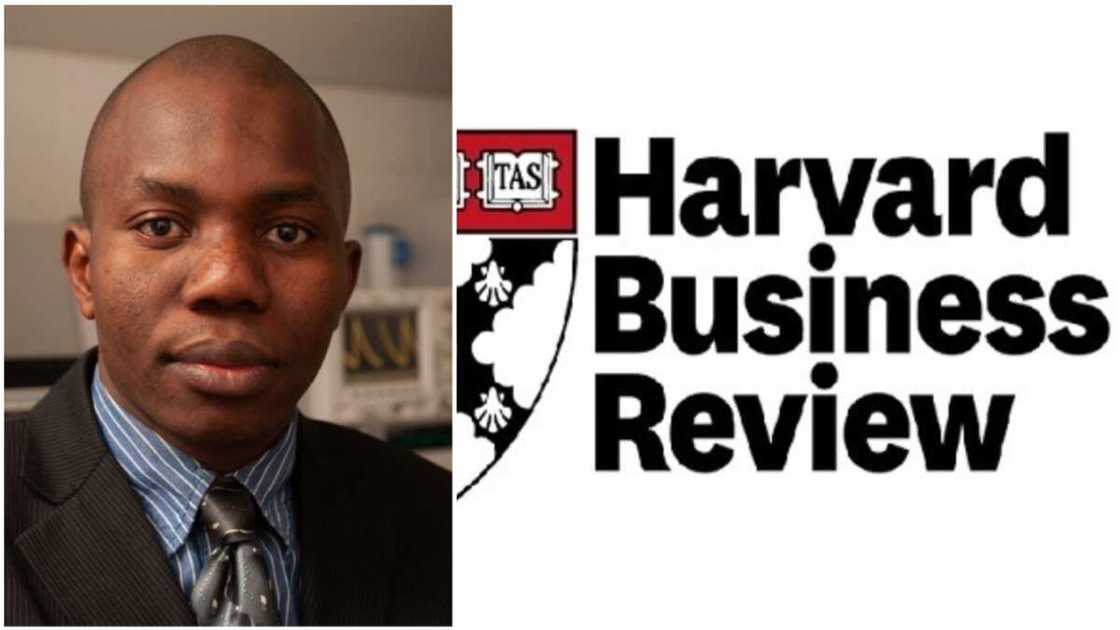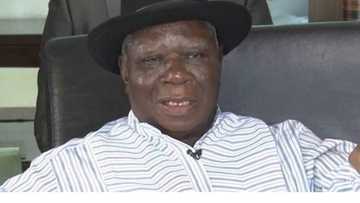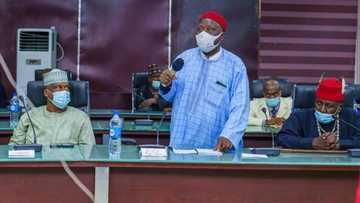Igbo Apprenticeship System Finally Approved by Harvard Business Review
- After passing through phases of editorial work, Harvard Business Review has approved the Igbo Apprenticeship System (IAS)
- The Igbo Apprenticeship System has been adopted for decades by the people of southeast Nigeria
- In the work now approved by the HBR, Ndubuisi Ekekwe, a Nigerian professor of Igbo ethnic stock, brought global attention to the system
- Ekekwe argues that the IAS will address the problem of growing inequality between the rich and the poor if adopted
PAY ATTENTION: Join Legit.ng Telegram channel! Never miss important updates!
Harvard Business Review has approved the work of Professor Ndubuisi Ekekwe on the Igbo Apprenticeship System (IAS).
Professor Ekekwe, the founder and president of the African Institute of Technology, confirmed this to Legit.ng on Wednesday, April 21.

Source: Twitter
The renowned Nigerian scholar had earlier announced on Tuesday, February 24, that the Igbo Apprenticeship System had passed the first phase of editorial work at Harvard.
He had stated:
“The Igbo Apprenticeship System work has passed the first phase of editorial work at Harvard. We have more phases to go, but everything is looking fine. Due to the nature of the topic, it is taking time.”
Almost two months after, Legit.ng reached out to Ekekwe to find out the latest status of the IAS.
The scholar simply responded, “It is approved now”.
Asked what significance the Harvard Business School’s approval holds for the IAS, the professor said the details will be included in the online version of the work which he said should be out in May.
He further took to his LinkedIn page to share more about the approval process, noting that his editor was impressed by the IAS.
Ekekwe quoted his editor as writing about the IAS, partly:
“Thanks so much for your work here. I like how you’re setting up the idea of stakeholder capitalism at the start while introducing the Igbo IAS...”
The Harvard Business Review is a wholly-owned subsidiary of Harvard University, reporting into Harvard Business School.
The Igbo Apprenticeship System (IAS)
According to Professor Ekekwe, the IAS “is the best business framework in the world”.
He explained that under the Igbo apprenticeship system, “you attain easily an efficient economic equilibrium where inequality is severely mitigated.”
In simple terms, there are global concerns that while the rich are getting richer, the poor are getting poorer, with the margin of economic inequality getting wider every day.
This global problem will be addressed if the world adopts the concept of the Igbo apprenticeship system, the professor argues.
Ekekwe gave a practical example on his professional blog:
“See it this way, a man goes into a business sector, and wins market share. Then, one day, he decides voluntarily to give out market share and immediately creates competitors for himself.

Read also
2023: Ijaw leader backs Igbo presidency, reveals why Buhari's successor must be from southeast
“And as he does that, he includes huge obligations to ensure those competitors thrive. So, magically, a system evolves where everyone is just doing well with no distorted imbalance.
“No one is super-rich but everyone is just fine! And the players just like it that way because “onye aghara nwanne ya” [do not leave your brethren behind] is part of the culture!”
The Igbo Apprenticeship System is practised mainly in the southeastern part of Nigeria which is mainly populated by the Igbo.
Professor Ekekwe said the Igbo’s adoption of the unique apprenticeship system is the reason why “Southeast Nigeria is the most balanced and economically stable part of Nigeria with the least hunger and economic stress on the citizens.”
The scholar cited a report by the United Nations Development Programme (UNDP) to back his position.
PAY ATTENTION: Join a community of CEOs, founders and decision-makers: subscribe for a free monthly business newsletter Digital Talks and succeed BIG!
In other news, some Igbo leaders led by Chief John Nwodo, former president-general of Ohanaeze Ndigbo, on Wednesday, February 10, visited the National Assembly to demand the creation of another southeast state from Enugu.
It was reported that Nwodo met with all the key officials in the National Assembly to push for the new state which he called 'Adada' adding it was approved at the 2014 national conference.
Responding to the demand during a meeting with the delegation, Senate President Ahmad Lawan said it is a legitimate agitation.
Source: Legit.ng





